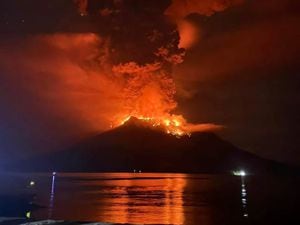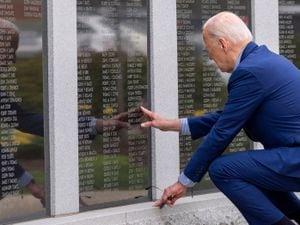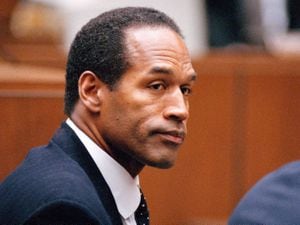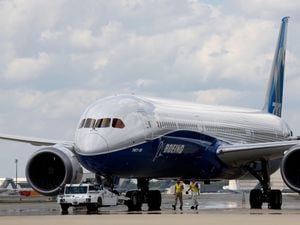What were the key outcomes at the G20 summit?
Here are some of the main developments at the G20 summit.
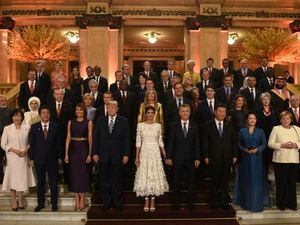
Leaders of the world’s largest economic powers have agreed to overhaul the global body that regulates trade disputes, but they faced resistance from US President Donald Trump over the Paris accord on climate change.
Here are some of the main developments at the G20 summit in Argentina, which wrapped up on Saturday:
– World Trade Organisation
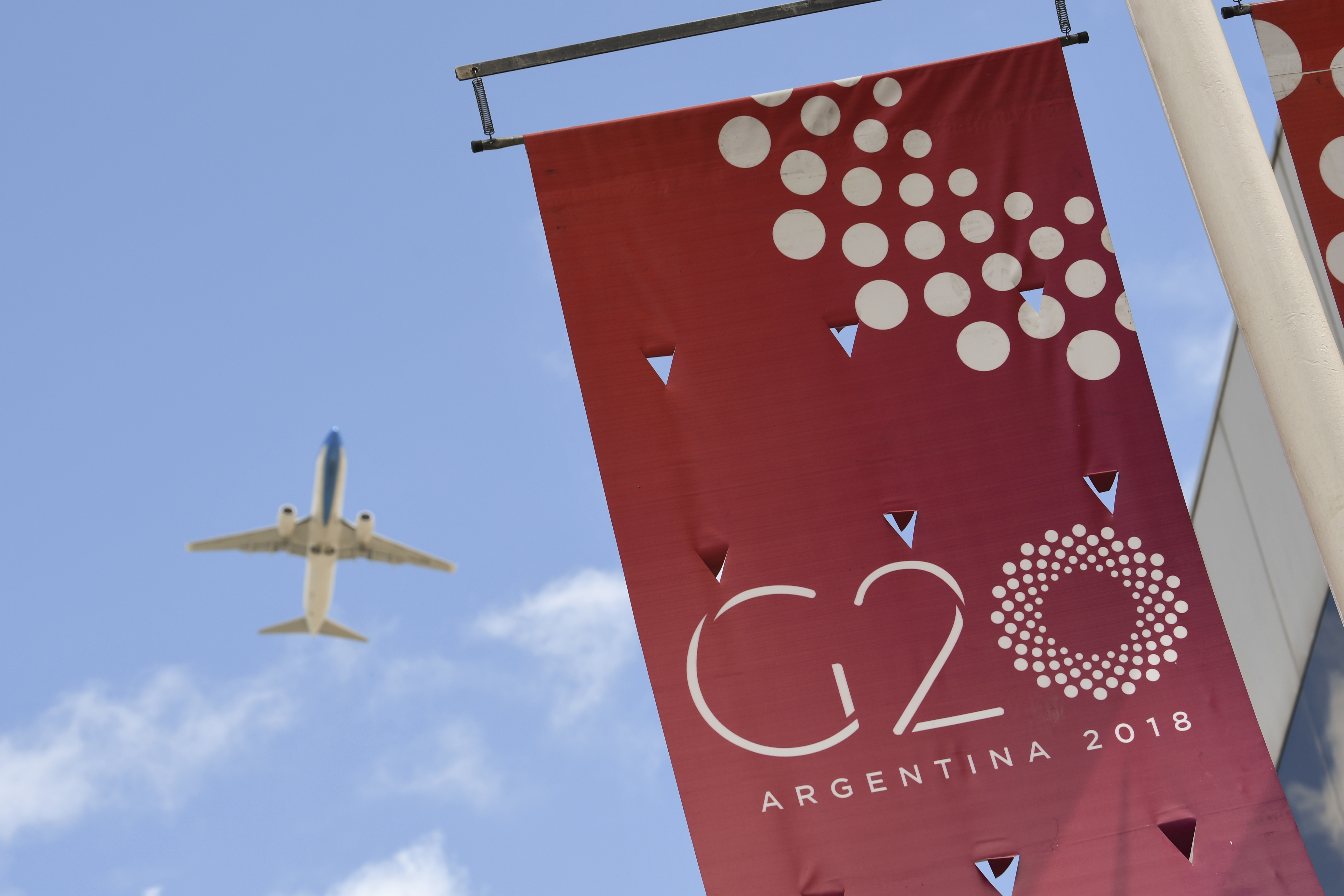
All G20 leaders called for reforming the World Trade Organisation (WTO) and the issue will be discussed during the group’s next summit in Osaka, Japan, in June.
The gathering’s final statement, however, did not mention protectionism after negotiators said the US objected to the wording. Mr Trump has criticised the WTO and adopted aggressive trade policies targeting China and the European Union.
– US-China trade war
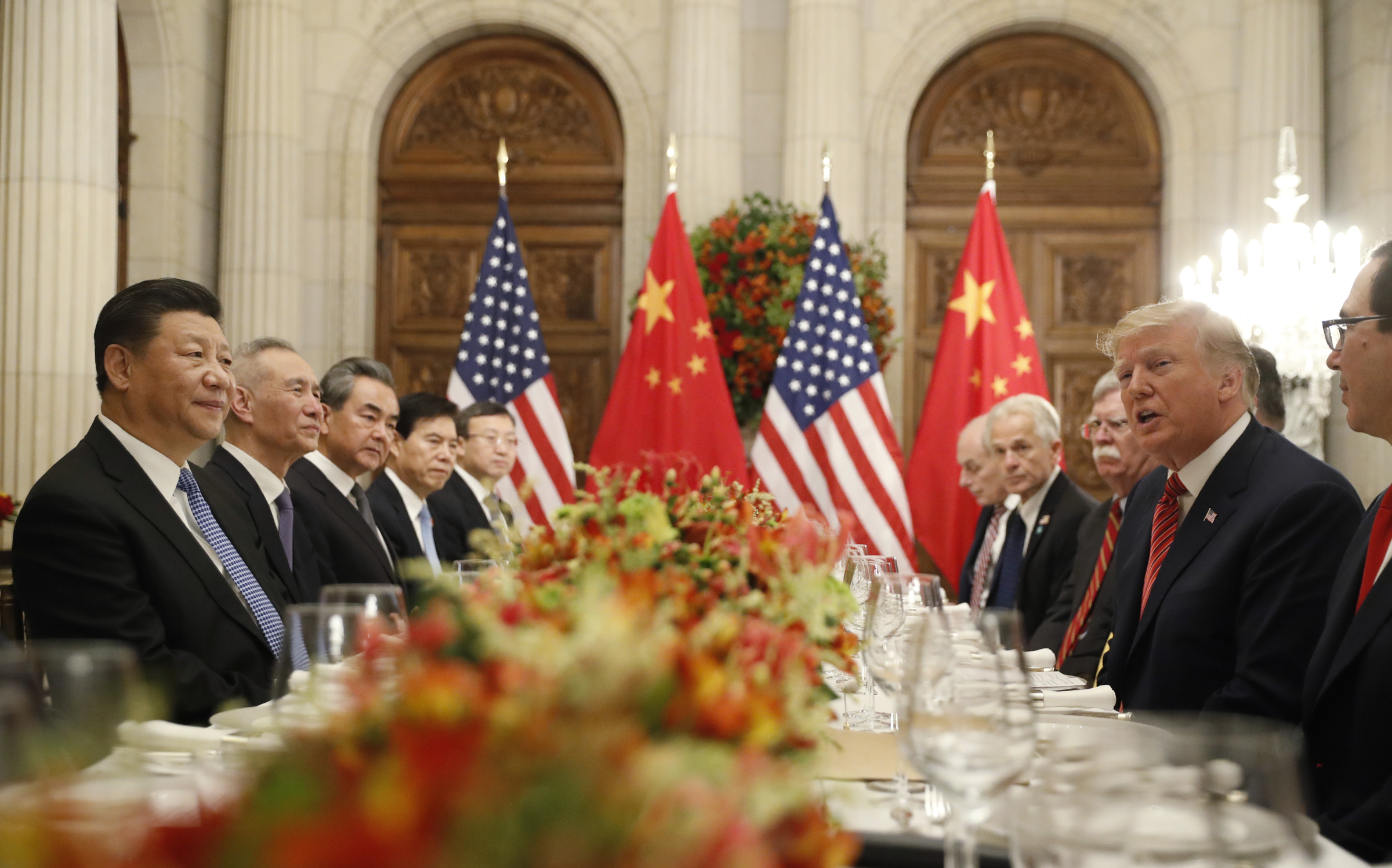
Financial markets will be cheered by the announcement that Mr Trump and Chinese President Xi Jinping agreed at a dinner after the summit to have a 90-day truce in their trade battle.
Mr Trump agreed to hold off on plans to raise tariffs on January 1 on 200 billion dollars in Chinese goods. Mr Xi agreed to buy a “not yet agreed upon, but very substantial amount of agricultural, energy, industrial” and other products from the United States to reduce America’s huge trade deficit with China, the White House said.
The ceasefire will buy time for the two countries to work out their differences in a dispute over Beijing’s aggressive drive to supplant US technological dominance.
– Prince under pressure
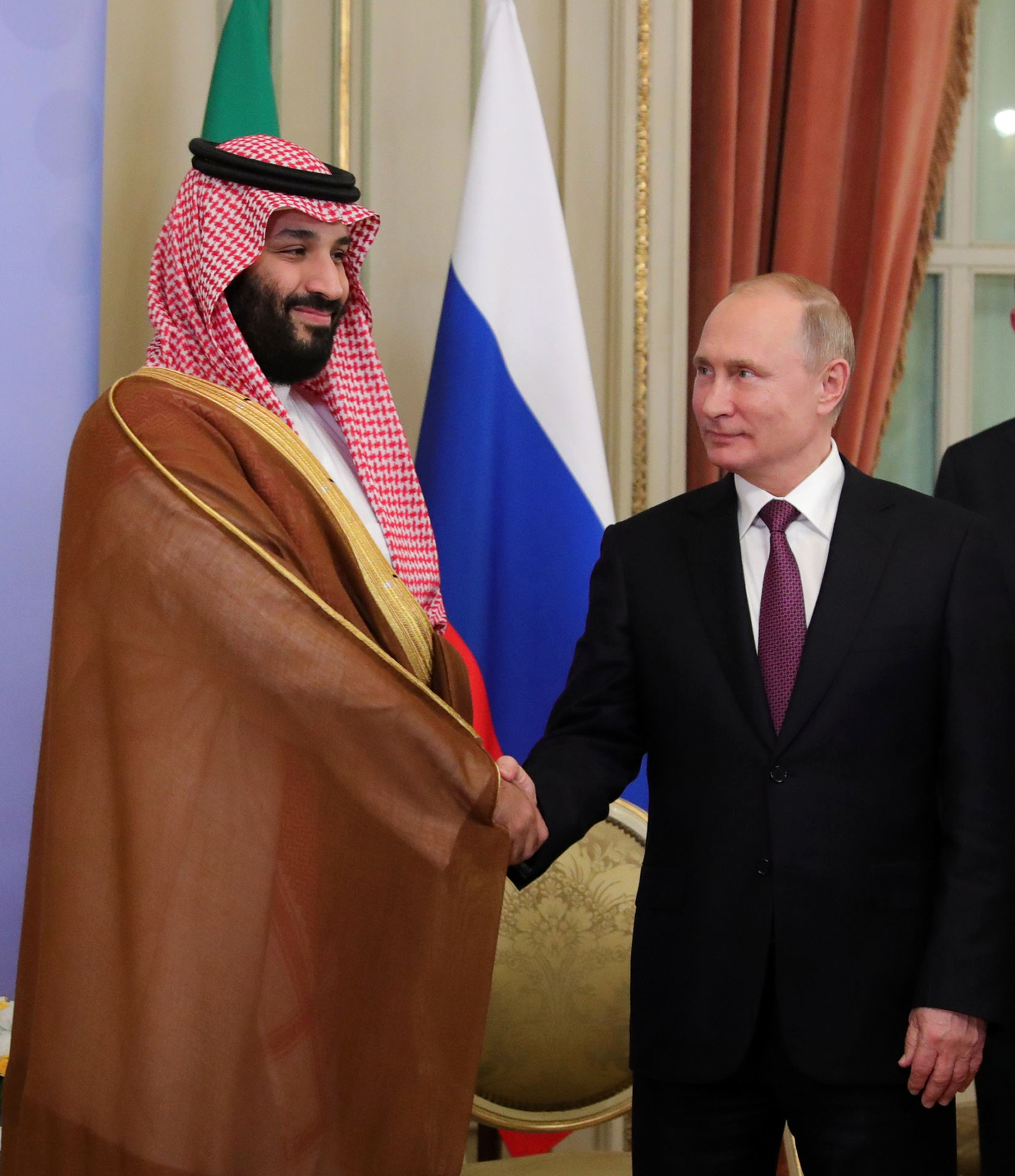
There were some awkward moments for Saudi Crown Prince Mohammed bin Salman as some leaders called him out over the gruesome October killing of dissident Saudi newspaper columnist Jamal Khashoggi at the country’s consulate in Istanbul.
French President Emmanuel Macron was captured on video seemingly lecturing Mr bin Salman, at one point being heard saying “I am worried,” “you never listen to me,” and “I am a man of my word.” Mr Macron said the crown prince only “took note” of his concerns.
British Prime Minister Theresa May also said she pressed Mr bin Salman.
President Recep Tayyip Erdogan of Turkey said Canadian Prime Minister Justin Trudeau was the only G20 leader to raise the issue during the official session. Mr Erdogan called Mr bin Salman’s response – that the crime had not been proven – “unbelievable” and complained that Saudi authorities have been unco-operative.
But it was not all bad for Mr bin Salman. He was not shunned, and on the gathering’s first day, he and Russian President Vladimir Putin engaged in a hearty grip-and-grin as the two seemingly revelled in their shared status as relative outcasts.
US intelligence agencies concluded the Saudi prince was behind the killing. Saudi Arabia denies he played a role.
– Ukraine conflict
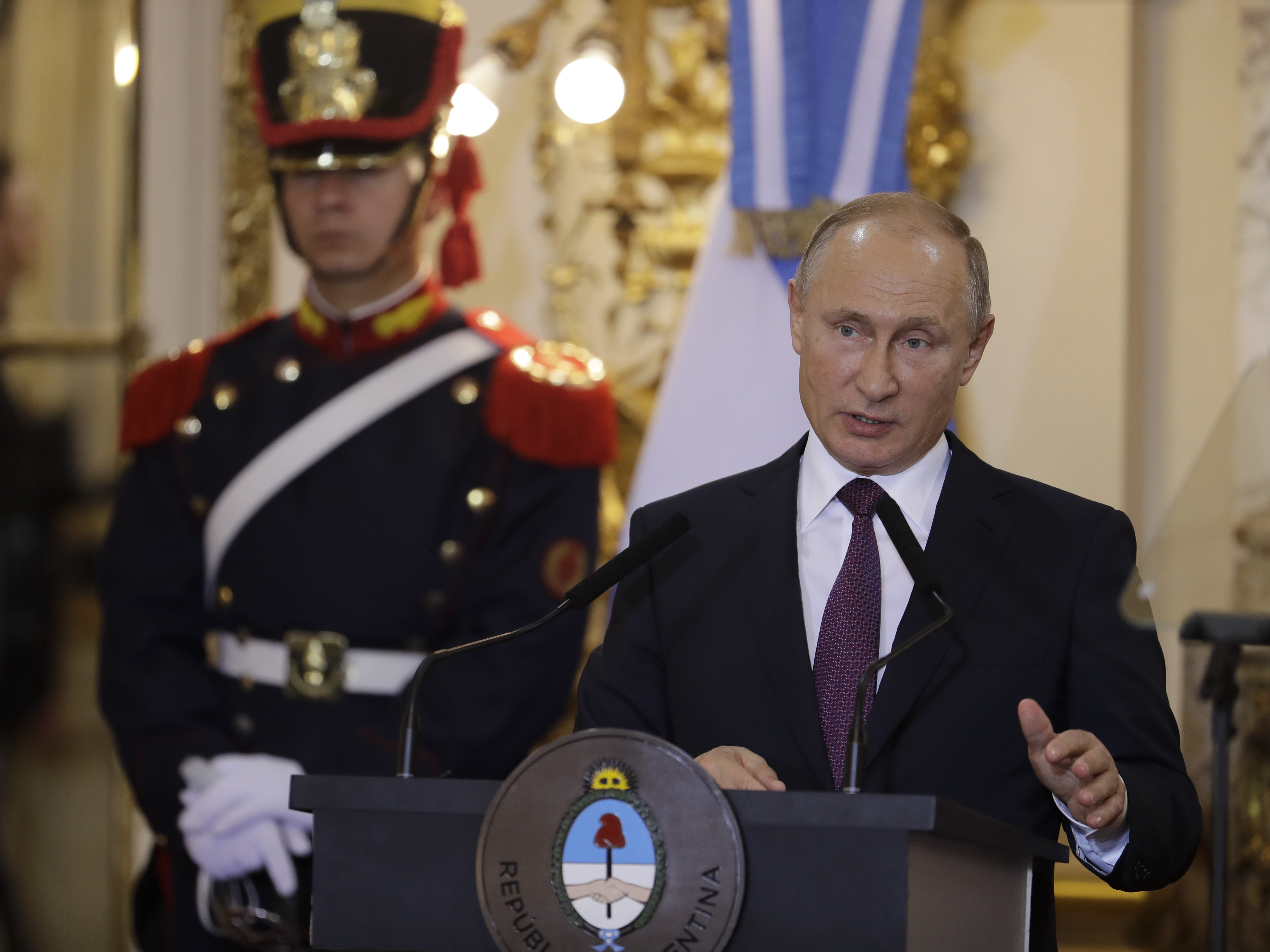
Western leaders confronted Mr Putin over Russia’s recent seizure of Ukrainian naval vessels and crews, but the diplomatic pressure did not seem to bring either side closer to solving the conflict. Russia and Ukraine have accused each other of being responsible for the standoff.
Mr Trump cited Russia’s actions as the reason that he cancelled a planned meeting with Mr Putin on the sidelines of the summit. EU Council president Donald Tusk sharply criticised “Russia’s aggression” against Ukraine.
Mr Putin tried to convince Mr Trump and the leaders of France and Germany that Russia’s actions were justified – even pulling out a piece of paper and drawing a map of the disputed area to make his point.
– Climate change
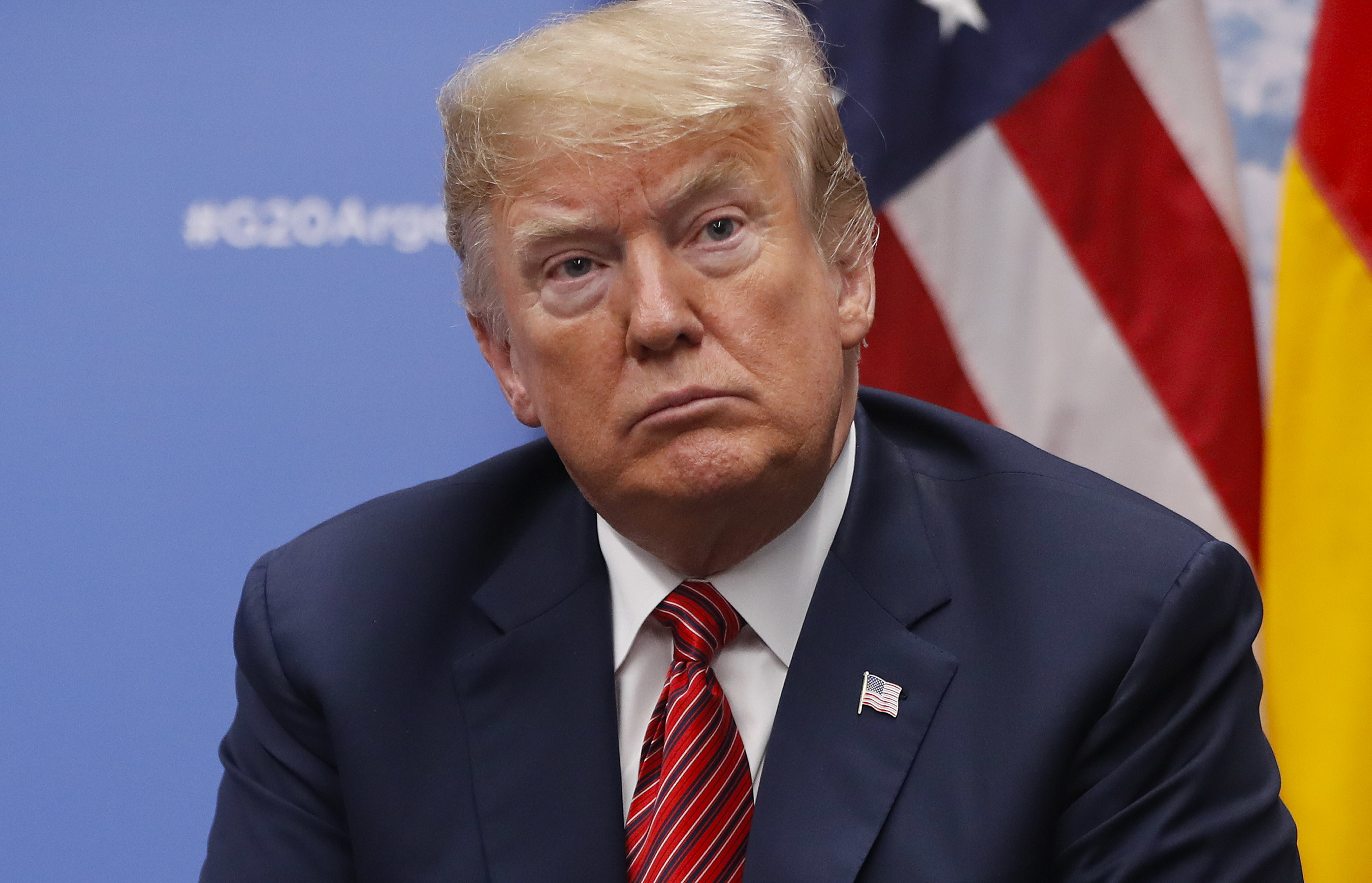
The final communique signed by all 20 member nations said 19 of them reaffirmed their commitment to the Paris climate accord. The only holdout was the US, which has withdrawn from the pact under Mr Trump.
Still, environmental groups praised the statement as welcome news.
“That G20 leaders signed up to the Paris Agreement reaffirmed their commitment to its full implementation in the resulting communique is important,” the World Wildlife Fund said. “It is also a reflection of the Argentinian government rightly making climate an important topic on the agenda.”
Greenpeace said that “the necessity of the US being part of the effort to fight climate change cannot be denied, but this is a demonstration that the US is still the odd one out”.
– NAFTA
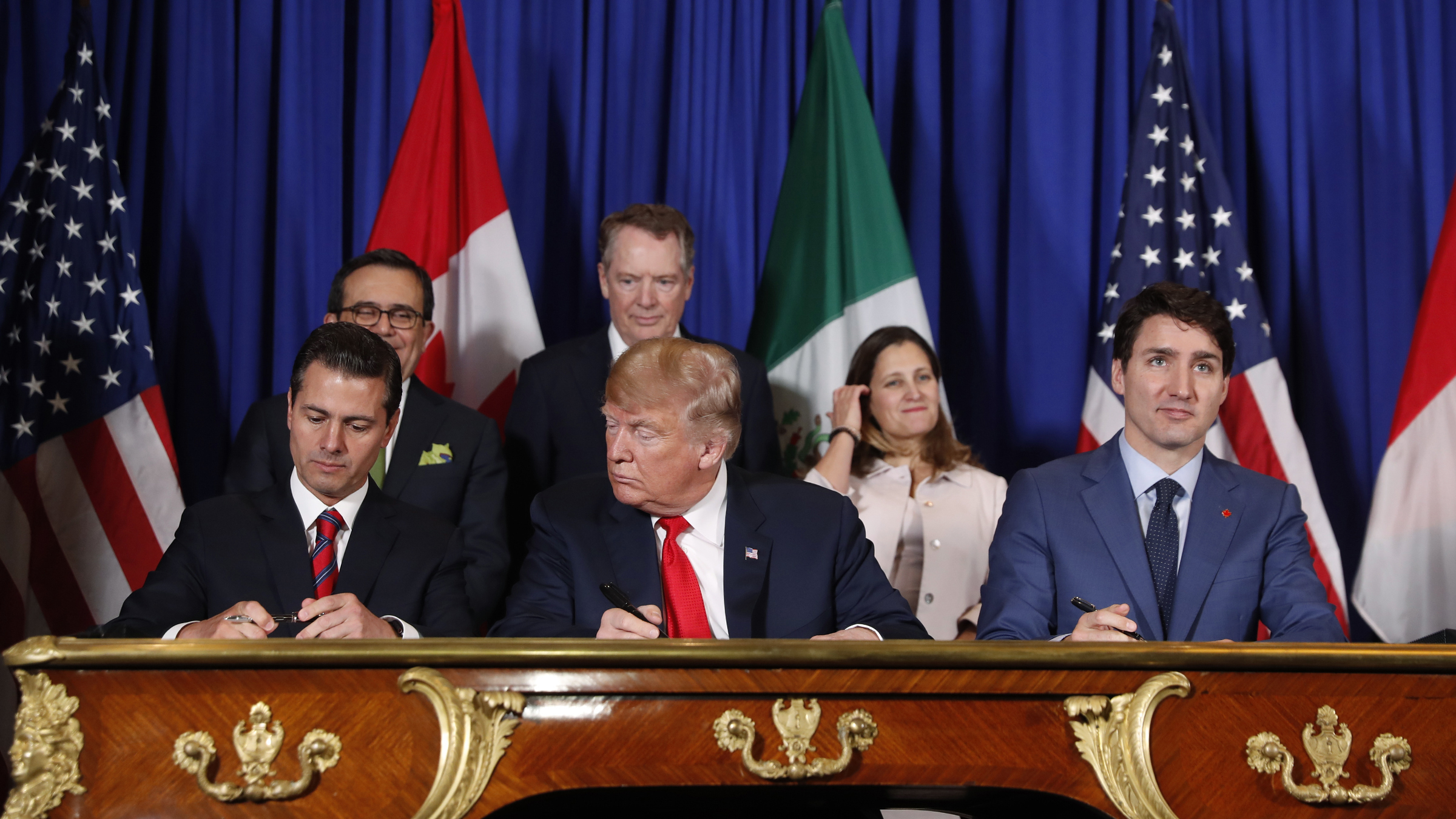
After two years of negotiations, Mr Trump signed a revised North American trade pact with the leaders of Canada and Mexico on the sidelines of the summit. The deal is meant to replace the North American Free Trade Agreement (NAFTA), which Mr Trump long denigrated as a “disaster”.
The new pact will not take effect unless approved by the legislatures of all three nations, and there are questions about the pact’s prospects in the US Congress, especially now that Democrats will control the House. Democrats and their allies in the labour movement are already demanding changes.
But Mr Trump said on the way back to Washington that he plans to formally terminate NAFTA, so Congress will have to choose between accepting the new pact or going without a trade accord.
– Low expectations – low output
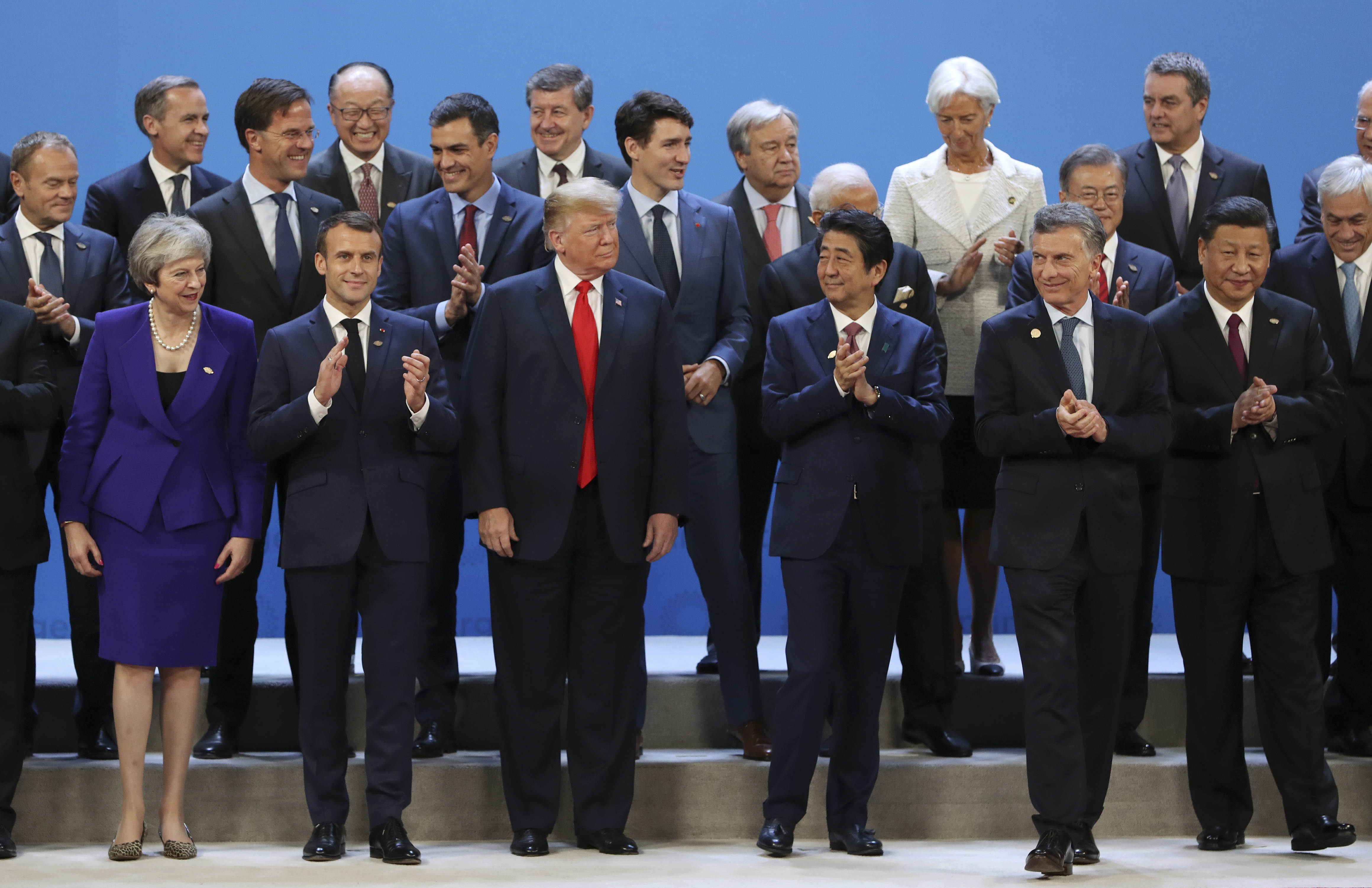
Even the host country had lowered expectations ahead of the summit, saying before the gathering started that it might not be possible to reach a consensus for a final statement.
After sleepless days of round-the-clock talks by diplomats, a communique was produced, but analysts said leaders merely signed a watered down statement that skirted trade and other contentious issues.
“The G20 veered all over the road” at the summit and the leaders failed to fix trade, which is widely seen as a priority for boosting growth in jobs and economies, said Thomas Bernes, a distinguished fellow at the Centre for International Governance Innovation who has held leading roles with the International Monetary Fund, the World Bank and Canada’s government.
“Leaders buried their differences in obscure language and dropped language to fight protectionism, which had been included in every G20 communique since the leaders’ first summit. This is clearly a retrograde step forced by United States intransigence,” Mr Bernes said.

